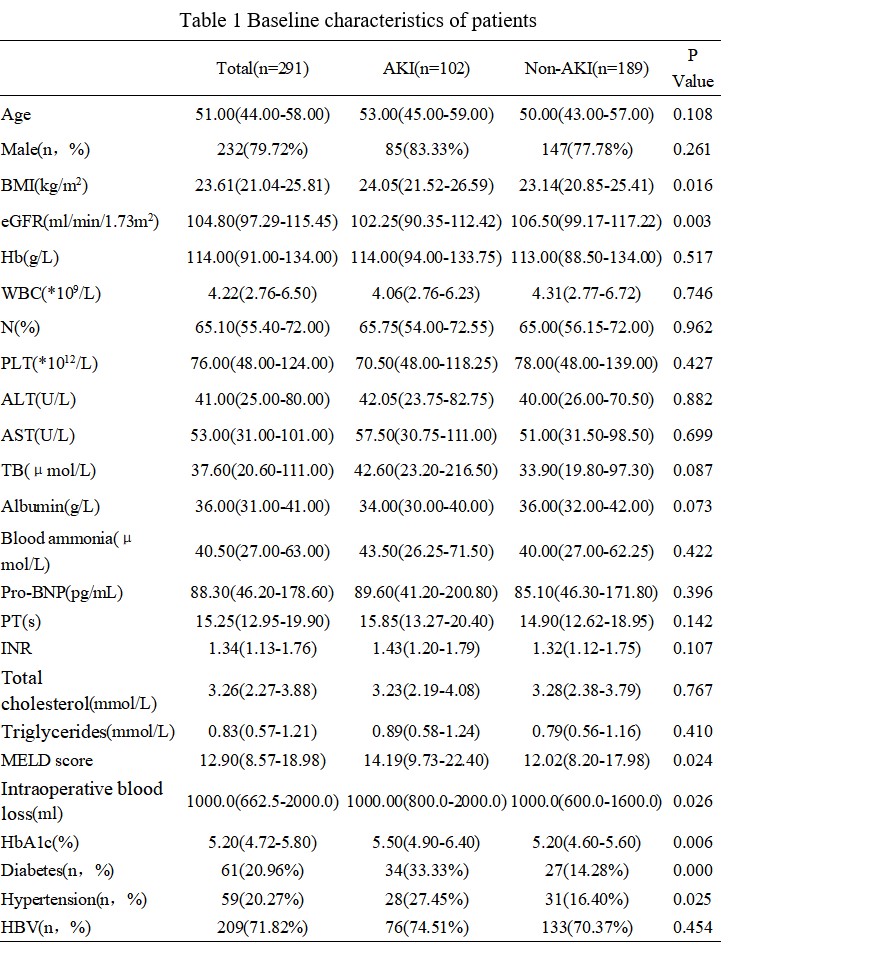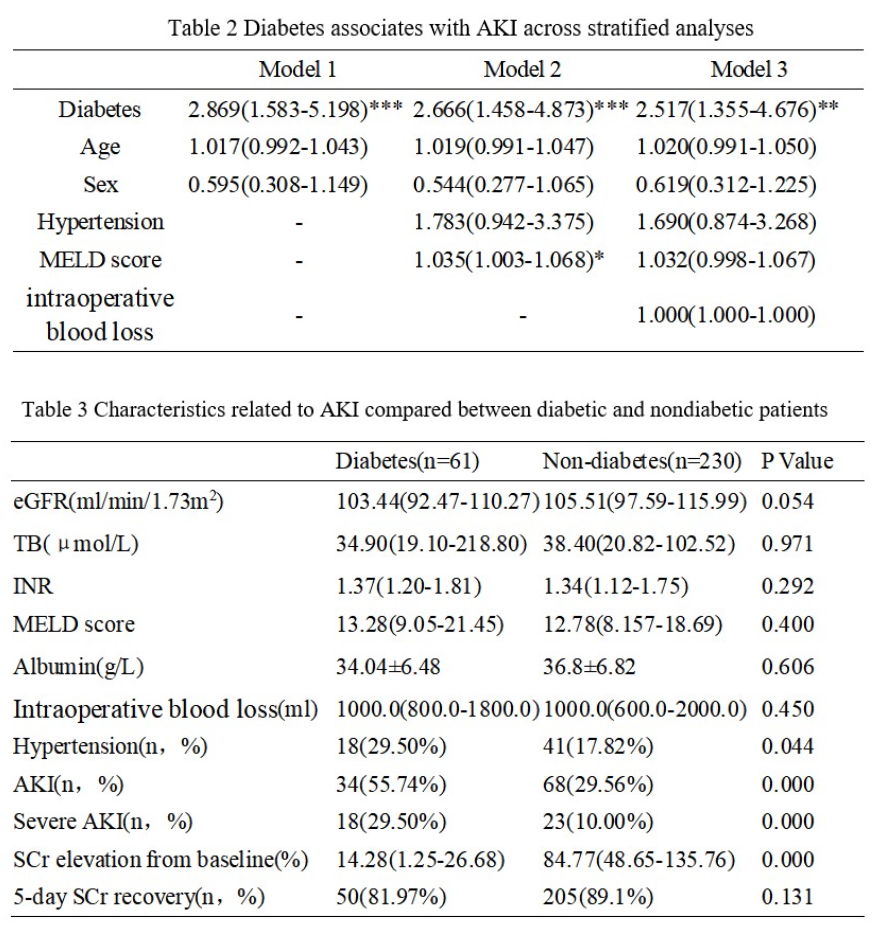Diabetes mellitus is a risk of AKI incidence in liver transplantation patients
Yujia Wang1, Jianhua Li2, Qionghong Xie1, Yi Guan1, Zhengxin Wang2, Chuanming Hao1.
1Division of Nephrology, Huashan Hospital, Fudan University, Shanghai, People's Republic of China; 2Division of General Surgery, Huashan Hospital, Fudan University, Shanghai, People's Republic of China
Background: Diabetes has become an increasing global health burden with rapid growth of prevalence. Patients with diabetes had higher susceptibility to AKI in several high risk AKI cohorts. Liver transplantation is one type of major surgery which predisposes kidney to injury. However, the association between diabetes and AKI in liver transplantation patients still remains unclear.
Methods: We conducted a retrospective cohort study involving patients undergoing orthotopic liver transplantation surgery.The primary endpoint was AKI occurrence. Multivariable logistic regression was used to analyze the association between diabetes and other potential risk factors and the outcome.
Results: A total of 291 patients undergoing orthotopic liver transplantation were included and 102 patients (35.05%) developed AKI within 5 days after operation. Potential risk factors including baseline eGFR, MELD score, diabetes, hypertension and intraoperative blood loss were screened out. Diabetes was determined as the independent risk factor for AKI by logistic multivariate regression. Patients who developed AKI had worse graft function recovery on the 14th postoperative day than those who did not develop AKI but had similar downtrend of eGFR a year after surgery with their non-AKI compeers.
Conclusion: Diabetes is the independent risk factor for AKI within 5 days after orthotopic liver transplantation surgery. AKI is associated with delayed graft function recovery on the 14th postoperative day but not with the rate of eGFR decline a year after surgery.




Natural Science Foundation of China 81700591.
There are no comments yet...
